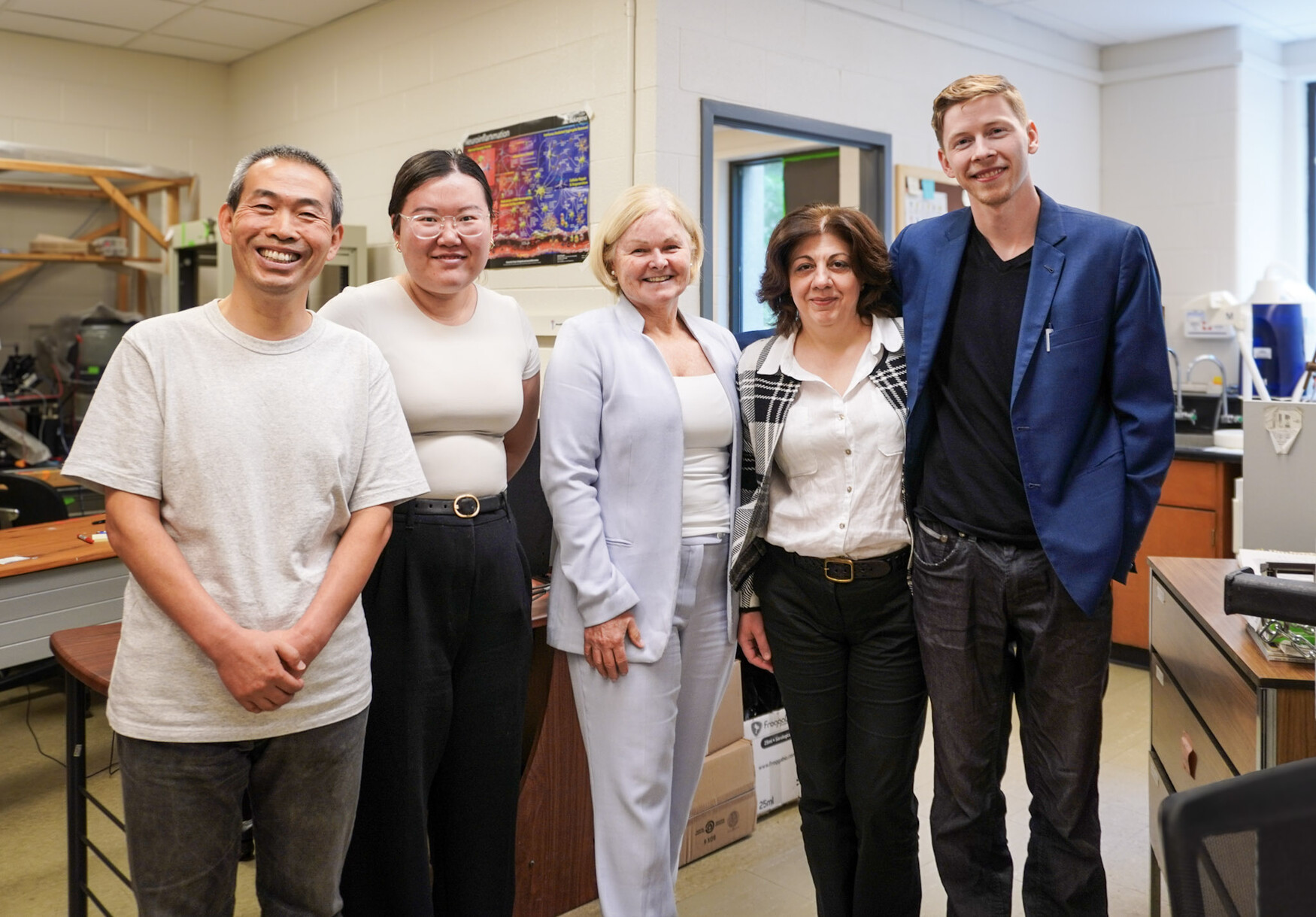Breadcrumbs
Dr. Beverley Orser

Lab Members
- Beverley Orser, MD, PhD, FRCPC: Principal Investigator
- Dianshi Wang, MD, PhD:Senior Research Associate
- Lilia Kaustov, PhD: Research Manager
- Ali A. Ghavanini, PhD: Postdoctoral Fellow
- Shahin Khodaei, BSc: PhD Student
- Arsene Pinguelo, BSc, MSc: PhD Student
- Winston Li, BSc: MSc Student
- Marc Anthony Manzo, BSc: MSc Student
Contact Us
E: beverley.orser@utoronto.ca
P: (416) 978-1518
F: (416) 978-4940
Lab Description
The mission of the Orser Lab is to generate mechanistic insights that translate into impactful advances in patient outcomes and neuroscience. They aim to identify molecular targets for anesthetics and to understand how changes in receptor function underlie the behavioural effects of these drugs. Such studies are essential for the development of new anesthetics with improved side effect profiles and the optimum use of available anesthetics.
Research Focus
The main focus of the Orser Lab is to understand the molecular mechanism of general anesthesia, repurpose general anesthetics for novel treatment of neurological disorders, and to the study the role of GABAA receptor in health and disease. Their studies also offer insights into the neuronal substrates that underlie pain, memory and consciousness.
They are the first to demonstrate the exquisite sensitivity of a population of extrasynaptic GABAA receptors to volatile and inhaled anesthetics. Behavioural studies using preclinical models have shown that the actions of anesthetics at extrasynaptic GABAA receptors in the hippocampus contribute to the amnestic properties of the drugs. The findings challenged the prevailing dogma that anesthetics act by increasing inhibitory synaptic transmission. These results have stimulated new areas of anesthetic research in laboratories around the world. In addition, the laboratory was the first to demonstrate the ability of anesthetics to reduce desensitization of these inhibitory receptors. This unique action of anesthetics may contribute to the profound neurodepressive properties of these drugs
Selected Publications
- Avramescu S, Wang DS, Lecker I, To WT, Penna A, Whissell PD, Mesbah-Oskui L, Horner RL, Orser BA. (2015) Inflammation Increases Neuronal Sensitivity to General Anesthetics. Anesthesiology (in press)
- Zurek AA, Yu J, Wang DS, Haffey SC, Bridgwater EM, Penna A, Lecker I, Lei G, Chant T, Salter EW, Orser BA. (2014) Sustained increase in α5GABAA receptor function impairs memory after anesthesia. JCI 124(12): 5437-41
- Whissell PD, Rosenzweig S, Lecker I, Wang DS, Wojtowicz JM, Orser BA. (2013) γ-aminobutyric acid type A receptors that contain the δ subunit promote memory and neurogenesis in the dentate gyrus. Ann Neurol 74(4): 611-21
- Lecker I, Wang DS, Romaschin AD, Peterson M, Mazer CD, Orser BA. (2012) Tranexamic acid concentrations associated with human seizures inhibit glycine receptors. JCI 122(12): 4654-66
- Wang DS, Zurek AA, Lecker I, Yu J, Abramian AM, Avramescu S, Davies PA, Moss SJ, Lu WY, Orser BA. (2012) Memory deficits induced by inflammation are regulated by α5-subunit-containing GABAA receptors. Cell Report 2(3): 488-96